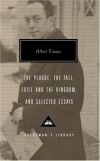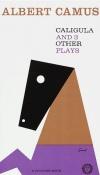
After hiding in a dismal cellar during the Nazi occupation, a Hungarian girl must flee from the Russians who now control her country

Albert Camus notes in his Preface that, although he has "the most passionate attachment for the theater," he has "the misfortune" of liking only one kind of play, whether comic or tragic. He concludes that there is no true theater without language and style, nor any dramatic work which does not, like our classical …
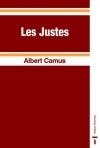
The Just Assassins is a 1949 play by French writer and philosopher Albert Camus. The play is based on the true story of a group of Russian Socialist-Revolutionaries who assassinated the Grand Duke Sergei Alexandrovich in 1905, and explores the moral issues associated with murder and terrorism. In the play, all but one …
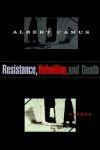
Resistance, Rebellion, and Death is a 1960 collection of essays written by Albert Camus and selected by the author prior to his death. The essays here generally involve conflicts near the Mediterranean, with an emphasis on his home country Algeria, and on the Algerian War of Independence in particular. He also …
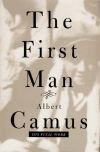
The First Man is Albert Camus' unfinished final novel. On January 4, 1960, at the age of forty-six, Camus was killed in a car accident in the Luberon area in southern France. The incomplete manuscript of The First Man, the autobiographical novel Camus was working on at the time of his death, was found in the mud at …

O homem revoltado é um ensaio filosófico escrito por Albert Camus e publicado em 1951. O livro analisa o conceito da Revolta de um ponto de vista histórico. Analisando suas características e seus desvirtuamentos. A revolta para Camus tem uma dupla significação. Não é apenas histórica, a revolta encontra algo de …

O mito de Sísifo é um ensaio filosófico escrito por Albert Camus, em 1941. No ensaio, Camus introduz sua filosofia do absurdo: o do homem em busca de sentido, unidade e clareza no rosto de um mundo ininteligível desprovido de Deus e eternidade. Será que a realização do absurdo exige o suicídio? Camus responde: "Não. …

 English
English Español
Español Deutsch
Deutsch

